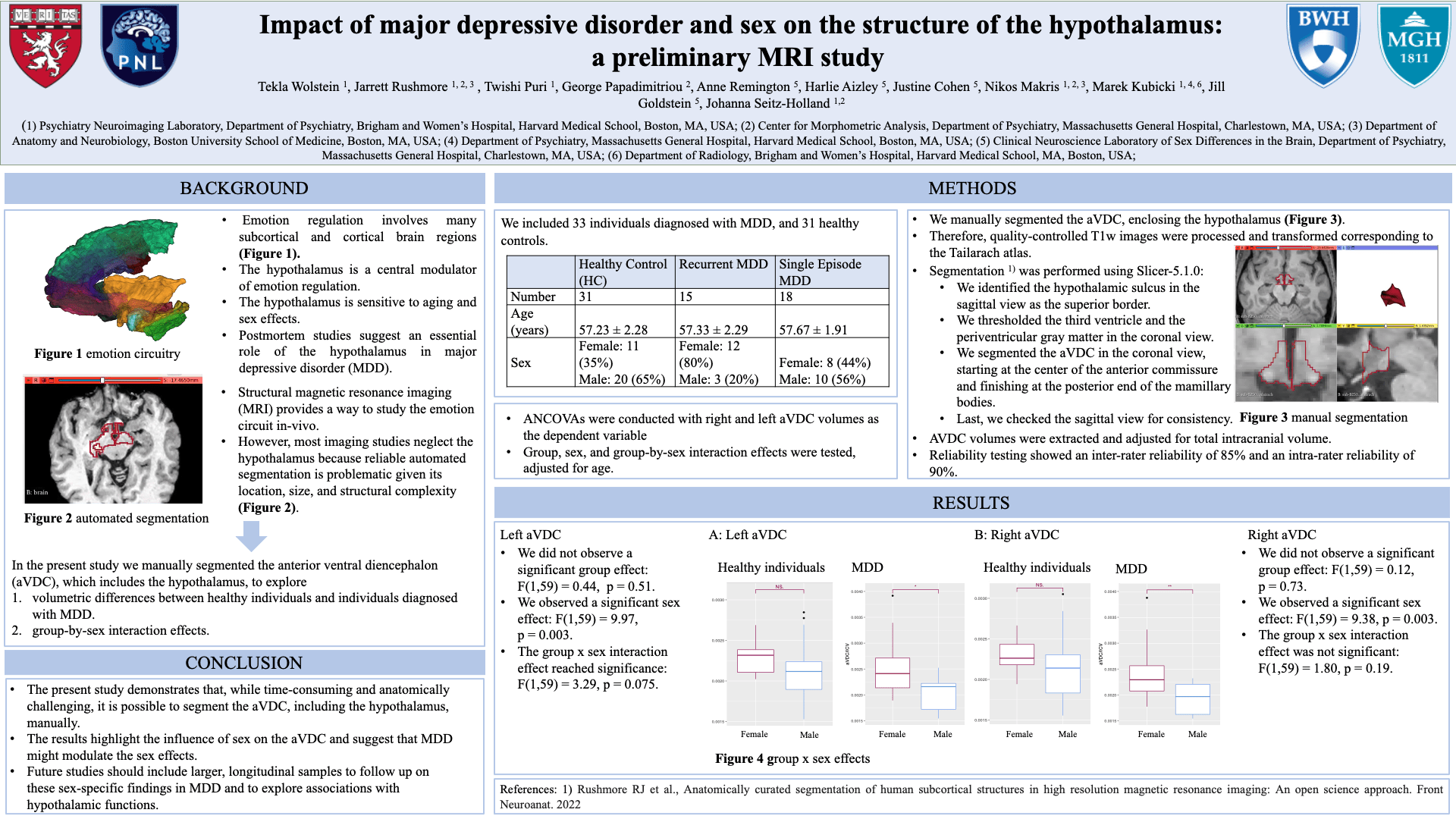Scientific Abstract
Background: Emotion regulation involves many brain regions, including the hypothalamus. Postmortem studies suggest an essential role of the hypothalamus in major depressive disorder (MDD). However, most imaging studies neglect the hypothalamus because reliable automated segmentation of the hypothalamus is problematic given its location, size, and structural complexity. We manually segmented the anterior ventral diencephalon (aVDC), which includes the hypothalamus, and conducted analyses of volumetric differences between MDD and healthy individuals as well as group-by-sex interaction effects.
Methods: Manual segmentation of the aVDC was conducted in 33 individuals with MDD (either single episode or recurrent) and 31 healthy controls. T1-weighted images were processed using FreeSurfer and transformed according to the Talairach atlas. Segmentation was performed using Slicer-5.1.0, with the hypothalamic sulcus, anterior commissure, and mamillary bodies as landmarks. Volumes of the aVDC were extracted, adjusted for total intracranial volume, and ANCOVAs were conducted with right and left aVDC volumes as the dependent variable. Group, sex, and group-by-sex interaction effects were tested, and adjusted for age.
Results: For the left aVDC, we observed a significant sex effect (F(1,59)=9.97, p=0.003) and borderline significant sex-by-group interaction (F(1,59)=3.29, p=0.075) but no significant effect by group alone: F(1,59)=0.44, p=0.51. For the right aVDC, we observed a significant sex effect (F(1,59)=9.38, p=0.003), but no significant group effect (F(1,59)=0.12, p=0.73) or group x sex interaction effect (F(1,59)=1.80, p=0.19).
Conclusion: The present study demonstrates that, while time-consuming and anatomically challenging, it is possible to segment the aVDC, including the hypothalamus, manually. Results highlight the importance of sex on the aVDC/hypothalamus and suggest that MDD might modulate the sex effects.
Search posters

